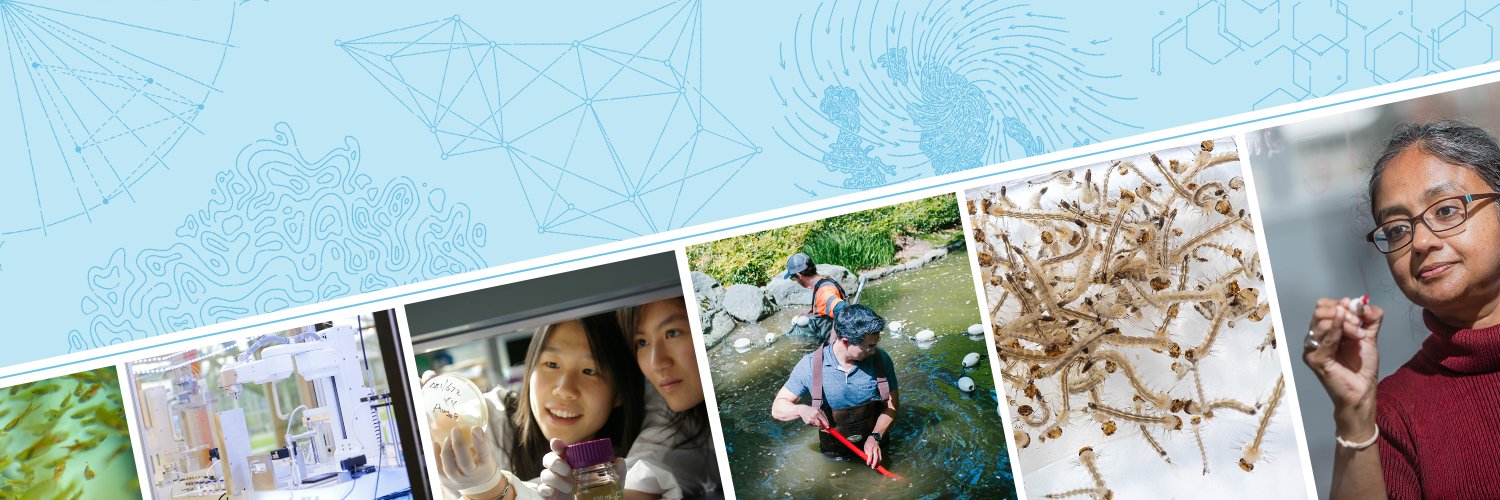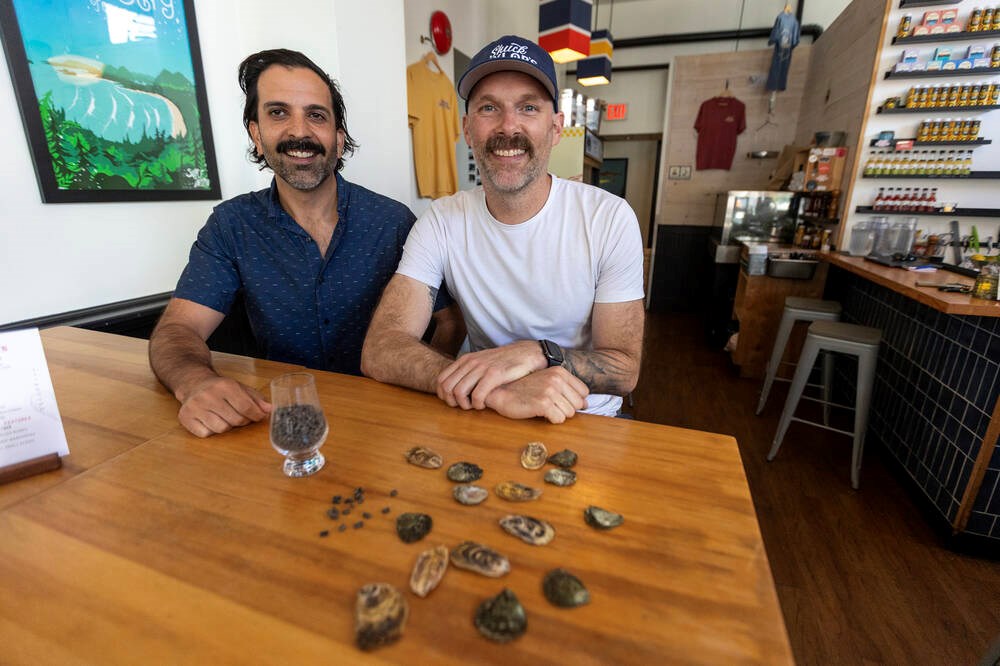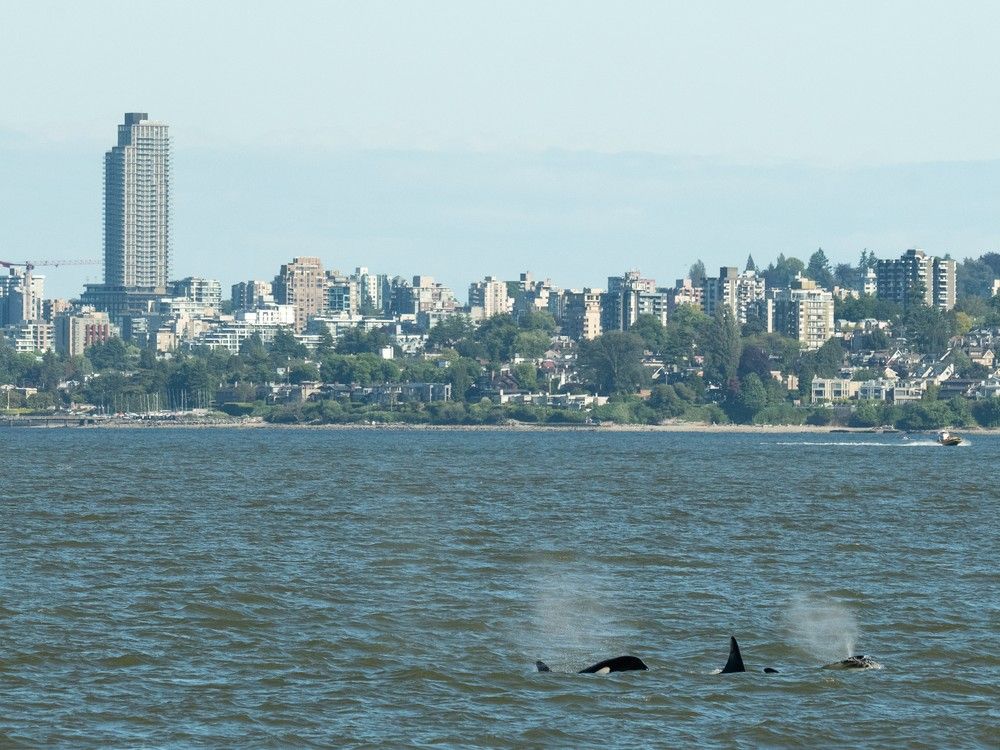
UBC Science
@ubcscience
News and events from the Faculty of Science at the University of British Columbia. Also on Bluesky at @science.ubc.ca
"We can't be like, 'Oh, they're recovered enough, so now let's go ahead and build this new pipeline or increase shipping traffic.' Those are all things that still concern us," says UBC's Dr. Andrew Trites about Salish Sea orcas. vancouverisawesome.com/national-busin…

“Pretty much everybody knows that the work was mistaken, but it’s still important to prevent newcomers to the literature from being confused” says retired @ZoologyUBC prof @RosieRedfield, who criticized the study after its publication in 2010. nature.com/articles/d4158…
JOB POSTINGS: 1. Canada Excellence Research Chair in Ocean Ecological Modelling 2. Canadian Excellence Research Chair in AI for Improving Patient Outcomes and Enhancing Health Service Delivery 3. Assistant Professor of Teaching in STEM Public Engagement science.ubc.ca/about/careers

A toxic algal bloom in Australian waters has killed thousands of marine animals. "Once a bloom has flourished, all that can really be done is to leave it to die on its own," said Dr. Patrick Martone of @UBCBotany. #ClimateChange @Martonelab cbc.ca/news/climate/s…

We’re hiring! The MSL & @UBCMicroImmuno are seeking candidates for an Assistant Professor of Teaching in STEM Public Engagement position. Learn more & apply: msl.ubc.ca/careers/ #IndigenousinSTEM #BlackInNature #WomenInSTEM #MinoritiesInSTEM #DiversityInSTEM #STEMEducation
With restorative work Canada’s western ecosystems are in a better position to absorb greenhouse gases than any current technology. “It's not just the plants, because the animals are fundamental parts of those ecosystems,” says Dr. @KaiChanUBC. @ubcires thetyee.ca/News/2025/07/2…

UBC Marine ecologist Dr. Chris Harley supports shell re-introduction on B.C.'s coast despite the risk of invasive species: "We could absolutely test whether my intuition on that is correct by ... swabbing things and sequencing.” @UBCoceans @ZoologyUBC timescolonist.com/islander/shell…

"This is not just an ecological story, but a human story that speaks to the wide-reaching impacts of colonization," said @megefford. @tsleilwaututh theconversation.com/colonization-d… via @ConversationCA
Preprint of today: Zhuo and Zheng et al., "Streaming 4D Visual Geometry Transformer" -- wzzheng.net/StreamVGGT/ VGGT with cache / causal attention for 70ms inference on an image stream. Similar to other Dust3R speed-up methods, but with VGGT.
“Strange metals” may point to a new understanding of electricity. "Maybe electrons are not the fundamental particle in condensed matter physics,” says Dr. Meigan Aronson of @UBCphas. Via @ScienceMagazine science.org/content/articl…

səlilwətaɬ (Tsleil-Waututh Nation) and @UBCoceans researchers have published groundbreaking research demonstrating severe colonial impacts that have devastated Burrard Inlet and səlilwətaɬ rights since European contact. Learn more: bit.ly/44FcvqY
“In our health care system, there really is a lot of text data that we never really have the time and the power to dig into,” says Dr. Raymond Ng @UBC_CS. “This is where #AI large language modeling is going to help us.” bit.ly/3TIVt6w

Preprint of today: Li and Yi and Liu et al., "Cameras as Relative Positional Encoding" -- liruilong.cn/prope/ Conditioning cameras (and rays) with Plucker raymaps have been a breakthrough for enabling 3D for transformer-based models. How you encode this matters a lot.
For everyone interested in precise 📷camera control 📷 in transformers [e.g., video / world model etc] Stop settling for Plücker raymaps -- use camera-aware relative PE in your attention layers, like RoPE (for LLMs) but for cameras! Paper & code: liruilong.cn/prope/
SEEKING: Canada Excellence Research Chair in #Ocean #Ecological #Modelling. #Professor or #Associateprofessor level with #tenure. ubc.wd10.myworkdayjobs.com/en-US/ubcfacul… @ubcscience @UBCeoas @UBCoceans
"The great white is really, really rare—although maybe it'll be more common in another 50 years when we do another anniversary for Jaws," said Dr. Andrew Trites of @UBCoceans. "Maybe then we can talk about great whites, because ... the waters are warming." cbc.ca/news/canada/br…

The population of Bigg’s killer whales has grown into the hundreds since the government stopped culling harbour seals and sea lions. In stark contrast there are only 73 endangered southern resident #orcas left. vancouversun.com/news/vancouver…

“Previously, people thought perhaps males realized that if they were more orange, they were more sexy,” explains Dr. Judith Mank of @ZoologyUBC. @judithmank @_Axeman_ karmactive.com/male-guppies-w…

“In even moderately busy airspace, there’s a high probability of getting disrupted by re-entering space junk,” says UBC astronomer Dr. Aaron Boley. @UBCphas smithsonianmag.com/science-nature…

It turns out colour isn’t just a fashion statement for guppies. UBC zoologists Drs. Wouter van der Bijl and Judith Mank found that the more orange the male guppy, the more virile it is. @ZoologyUBC @judithmank @_Axeman_ science.ubc.ca/news/2025-07/o…

Corn is a staple summer side dish, but it’s also plagued by fungal infections. To combat the fungus Ustilago maydis, Jim Kronstad's team is investigating how the pathogen drains the health from its host, paving the way for new crop protection strategies. bit.ly/3IbAVAR